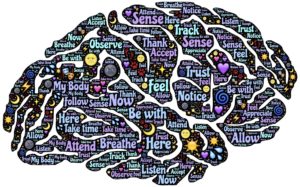Finding mental health treatment that works for you can feel like a daunting process. So before I go any further, let me say thank you for looking into this and taking steps towards taking care of yourself! There may be stresses going on right now that feel daunting and unmanageable, or perhaps you can’t seem to pull yourself out of this funk that you have been stuck in.
 Maybe someone in your life has left, be it through death, divorce, or move, and their absence feels like a weight you didn’t imagine possible. Whatever plagues you now, the thought of finding mental health treatment might seem like just too much energy to expend.
Maybe someone in your life has left, be it through death, divorce, or move, and their absence feels like a weight you didn’t imagine possible. Whatever plagues you now, the thought of finding mental health treatment might seem like just too much energy to expend.
My hope is that in the next few minutes of reading this I will be able to first normalize your experience, talk about why it can be so hard to get a hold of counselors, and then give you some guidelines for what sort of mental health treatment may be beneficial for you!
Why People Pursue Mental Health Treatment
All sorts of people come in for mental health treatment. Men, women, young, old, people of all races; we all experience mental health troubles at one point or another. Sometimes we experience these due to external factors, such as events in our lives, and sometimes they stem from internal biological factors. When I meet with a new client, I’m usually trying to help them and myself figure out what is going on in a few larger categories.
Most often, there is some element of anxiety, depression, trauma, substance use, and/or thought disorders. However, sometimes they branch out into eating disorders, childhood disorders, learning disorders, and a whole host of other things. Further, most of the time people who could use counseling don’t even fall into a real firm “diagnosis” per se, but rather some dysfunction in their life or in their family’s life.
There is no wrong reason to come into mental health treatment. If you feel that you would benefit, then you will! It becomes just a matter of finding the right counselor and the type of treatment that works for you. Treatment can scale according to what your needs are. Most people I see I see for one hour, once a week. Some are every other, and sometimes people choose to come twice a week.
After a while, most of my clients taper off to every other week or once a month. However, this is for outpatient treatment. For many, some form of inpatient treatment where you can really unplug from the stress of day to day life for about a month is entirely necessary to jumpstart your mental health journey.
Again, this frequency and scale of treatment should be up to what you and a counselor deem to be necessary and beneficial. Really, the only thing I would say mental health treatment is not a good fit for is that of a surrogate for parenting. I am more than happy and love working with and assisting parents in their role, but I can never replace that.
Difficulties in Finding Mental Health Treatment
 I would like to address the elephant in the room when it comes to finding therapists, and just acknowledge how hard it can be at times. Perhaps you started with a Google search, found a few to call or email, and haven’t heard back. I hear this all the time and I know it’s frustrating. I know I have been guilty of being slow to respond or even failing to altogether.
I would like to address the elephant in the room when it comes to finding therapists, and just acknowledge how hard it can be at times. Perhaps you started with a Google search, found a few to call or email, and haven’t heard back. I hear this all the time and I know it’s frustrating. I know I have been guilty of being slow to respond or even failing to altogether.
Let me peel back the curtain and explain why sometimes we can be hard to get a hold of. First of all, we are human. Simply put, we might see an email or phone call, get distracted, and then forget to call back. Especially therapists who are full and don’t have much capacity to take anyone else on, it’s so easy to forget an email or phone call. We should be better about calling back, but often therapists fail to do so.
Second, sometimes our info is outdated. Therapists move, change work venues, or get a job in a new field entirely. However, that info may stay in some database and make it seem like they are still practicing at that location. It can be hard to scrub your data from every therapist compiler there is. Also, many clinicians do a mix of private practice and other work, be that in the field or not, so the numbers to contact them may not be up to date and appropriate for them
Beyond just finding a therapist, though, there exist obvious difficulties in engaging in mental health treatment I would like to address here. The first and often biggest is that of the cost of therapy. Our rates are, admittedly, expensive. Most therapists don’t provide 40 hours of therapy a week, plus there is a lot of overhead in terms of facilities, insurance, and keeping up with continuing education.
So while that therapist might charge $150 an hour, they are not taking all of that home. Most therapists tend to try and not see more than 30 clients in a week, and most would ideally say 25. If we all saw 40 per week, we would be spread so thin we could not provide very good care in general. As such, we have to charge a higher rate.
You can go through your insurance, but often this results in less choice and many therapists do not choose to accept insurance due to low pay outs and the overall headache it can incur. For those on state insurance, however, there does exist many options for therapy that will be completely covered, but often you will not get a high frequency of visits available and may have to wait a bit to see someone, especially if you are looking for medication.
Another issue that gets in the way of therapy is just the time it takes. Again, we therapists are people too, and we have families, hobbies, and interests that we would like to take the time for after work. As such, we might provide some after 5 pm hours, but often not daily.
 For many, this might mean that to make therapy work involves taking long lunch or leaving early/starting late from work once a week. This is a significant barrier many face in trying to schedule an appointment. I offer every other Saturday, myself, and try not to schedule after 5 pm, but twice a week, and even then only till 7 or 8 do I see clients after 5 pm. Every therapist decides what works for them, so it may take contacting a few till you can find one whose schedule aligns with yours.
For many, this might mean that to make therapy work involves taking long lunch or leaving early/starting late from work once a week. This is a significant barrier many face in trying to schedule an appointment. I offer every other Saturday, myself, and try not to schedule after 5 pm, but twice a week, and even then only till 7 or 8 do I see clients after 5 pm. Every therapist decides what works for them, so it may take contacting a few till you can find one whose schedule aligns with yours.
Let’s say you’ve found someone you can afford and it’s at a time you can do. Now the issue of fit comes into play. Ultimately, therapy and counseling are special relationships designed to increase your mental health. As such, every therapist won’t be a good fit for you.
This can be disheartening since you might not realize it until you’ve had a few sessions, but finding someone you trust and feel you can grow with is crucial to getting the most out of your mental health treatment. I will talk further about the modalities of therapy in a little bit.
Finally, mental health treatment often involves taking some medication. By no means is this always the case, but sometimes we just need it. Someone with diabetes takes insulin, and no one bats an eye, yet there exists a stigma about taking medication for mental health issues. It can be hard and frustrating, but finding the right medication is important.
Unfortunately, this can be a barrier as many medications take time to build up into your system (quite often about a month) before they gain effectiveness, so finding one that really works can take a few months of trial and error.
Sometimes you can guide the process if you know something that worked for a family member, but quite often it requires just taking a few medications until you find one that sticks. The only advice I could give in this regard, then, is that if it is going to take a while, do not hesitate to begin!
What Works?
Depending on what is happening in your and your family’s life, the answer to this question will vary greatly. First, there is the question of who is in the room – is it just you and the therapist? Do you need couple’s counseling? How about family? My training is in that of marriage and family therapy, which could also be called systems therapy.
Marriage and Family Therapists are trained to look for issues within a family system, not just in individuals. I often want to see you in the context of at least one other family member, since you’re probably spending way more time with them than me. When I’m working with a couple, I make it a point to frame it as the relationship is my client. This framework helps to de-pathologize everyone involved and focus on improving the relationship.
Once you determine what kind of mental health treatment you want, then the question moves towards what sort of therapeutic bent to you want to work with. There is no one right way to do therapy and a lot of different therapies work towards similar goals, just taking a different route to get there.
Let me go through some buzz words and therapy types you may see listed on various therapists’ websites and what they allude to:
CBT: Cognitive Behavioral Therapy
 This therapy gets at unhelpful thoughts and how they impact your emotions and actions, and further how they all interact with each other.
This therapy gets at unhelpful thoughts and how they impact your emotions and actions, and further how they all interact with each other.
DBT: Dialectical Behavioral Therapy
This modality is similar to CBT in a lot of ways but adds an emphasis on mindfulness. This modality often involves groups and intensive work in addition to individual therapy.
Mindfulness
The practice of slowing yourself down and noticing your own self in the present moment, without judgement.
Gottman-Trained
The Gottmans are a researcher duo that have created a very behavior based method by which to work with couples. Highly research focused, they have a lot of empirical data on how they create their methods.
Solution-Focused
A method of therapy that involves focusing on your strengths and employing them to help navigate and reach you towards the goal. There will be less talking about the problem and more talking through what is going well and how you can do more of that.
Experiential
This word means it’s focused highly on what is happening in the session and experiencing change in the therapy room. Less focused on the past, experiential therapists focus on present emotions and helping you to focus on them.
CPT: Cognitive Processing Therapy
A therapy that focuses on processing trauma.
EMDR: Eye Movement Desensitization and Reprocessing
A therapy that works towards processing trauma and past experiences that utilizes some sort of stimulation, whether physical, auditory, or visual, that alternates to either side of your body. The research shows that talking through what happened while undergoing this helps you to process your trauma.
Lifespan Integration/LI
This therapy focuses on processing past traumas as well by putting them in the context of your life. Sort of a therapy-via-exposure to your own memories over and over again.
EFT: Emotionally Focused Therapy
This therapy was originally developed as a couples therapy, and its focus is on unearthing unhelpful cycles, healing from them, then creating new and healthy attachment bonds.
Reach out!
The above just scratches the surface of what therapy can look like, and ultimately every therapeutic relationship is a little bit different. Hopefully, this article has normalized some of the difficulty surrounding therapy and you feel a little more equipped to dive into the world of therapist searching.
Know that finding mental health treatment that works for you can be a difficult process, but it is so worth it. It improves the quality of your life and the return on investment is immense. Don’t wait! Reach out today to start improving your life!
“Candle Guy”, Courtesy of Brenkee, Pixabay.com, CC0 License; “Mental Health”, Courtesy of Tumisu, Pixabay.com, CC0 License; “Counselling”, Courtesy of Mohamad_Hassan, Pixabay.com, CC0 License; “Mindfulness”, Courtesy of John Hain, Pixabay.com, CC0 License


